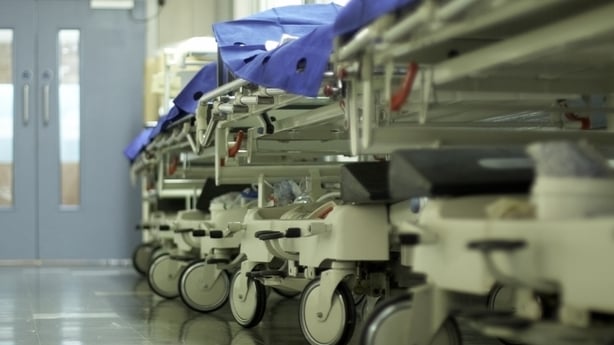This year will be defined in many ways as the year when the Covid-19 restrictions were finally lifted.
While those dark days may be gone, the impact and the memory of the pandemic will live on for years to come.
So far, Ireland has seen over 1.6 million PCR confirmed cases of the disease and there have been more than 8,270 deaths.
The mix of high vaccination, booster rates and infection levels means that there is a high level of immunity for now.
Of course, Covid-19 has not gone away and the World Health Organisation says it will be with us for years.
According to a recent article in National Geographic, as Covid-19 continues to run its course, the likeliest long-term outcome is that the virus will become endemic in large swaths of the world, constantly circulating among the human population but causing fewer cases of severe disease.
Experts say that eventually, years or even decades in the future, Covid-19 could transition into a mild childhood illness, like the four endemic human coronaviruses that contribute to the common cold.
The one danger is of course that a new variant of concern could emerge, that is much more severe and contagious than what has gone before. Let's hope not.
It is still unclear whether Covid-19 vaccinations will be a part of the regular winter vaccination campaigns.
Death of campaigner Vicky Phelan

This was also the year when Ireland lost the brave campaigner Vicky Phelan to cervical cancer.
Her fight to improve the system was public and brutally honest. The pressure remains on the Government to introduce a new law that requires doctors and hospitals to admit mistakes and have a duty of candour.
The amended proposed legislation has been delayed to January and will be scrutinised closely.
Today, a band of warriors continue the campaign for a system that fully recognises the mistakes of the past.
I am thinking of Lorraine Walsh, Stephen Teap and others. In Stephen Teap's, case he secured a very significant victory in the High Court after the death of his wife Irene - an admission of liability.
He went on to say that the Government had "blood on its hands" over the affair.
A small new screening laboratory is due to open at the Coombe Women and Infants University Hospital, but the reliance on screening in the US will continue.
The spotlight will remain on the cervical screening programme in 2023.
Overcrowding figures

Each year brings new challenges in the health system, but some things seem to stay much the same – overcrowding and long public hospital waiting lists.
When I started as Health Correspondent in RTÉ News in 2004, overcrowding and waiting lists were big issues. Eighteen years on, we regularly report on the continuing misery these problems cause patients and their families.
These are big challenges for the Taoiseach and Stephen Donnelly, who remains as Minister for Health after the reshuffle.
Over 800,000 people are on some form of public hospital waiting list. While the amount of time spent for long waiters has reduced, the Irish Hospital Consultants Association has said that the lists are effectively stagnant.
It also says the 18% target reduction promised by the Government for the end of this year has not materialised.
Hospital overcrowding continues and most days see 500- or 600-plus waiting for admission to a hospital bed.
The highest level recorded on a single day was 760 on 6 January 2020, just before the pandemic arrived. That figure was matched again on 19 December this year.

The recent Health Information and Quality Authority report on overcrowding made for sobering reading and it pointed to the key underlying problems – a lack of acute beds, poor management planning for staffing shortages and a lack of leadership at local, regional and national level.
This will be an issue at the top of Bernard Gloster's inbox as he takes up the new post as Health Service Executive CEO, after the departure of Paul Reid.
The most recent Health Trends report from the Department of Health shows that ten years ago, Ireland had 10,337 acute hospital beds. Almost a decade on, it had 11,337 acute beds last year.
That is a net increase of 1,000 beds with a population now past 5 million people and an ageing population with growing health needs.
Health consumes a lot of taxpayers' money.
Ten years ago, the day-to -day spend was €13.5 billion. Now it is almost €23 billion. Much of the funding goes on the sizeable staff number of over 132,300 people.
Challenges of winter

Winter is always a challenge for the health system.
During the pandemic years, we saw fewer cases of colds and flu and other respiratory illnesses. However, they are back this year.
In recent times, there has been a predicted rise in influenza cases, RSV cases and invasive Strep A, and, sadly, the deaths of seven people, due to the Strep A bacterial infection.
There were no deaths due to Strep A in 2020 or 2021. But there were two deaths reported in 2018 and also in 2019.
The HSE is also expecting a surge in influenza cases and a rise in Covid-19 in the weeks ahead, especially with the scale of socialising associated with the festive season. So that means that January could be a very difficult month for the health system.
This week, it warned that it expects a surge in winter virus infections in the weeks ahead that will bring the highest pressure on the State's health service it has ever seen.
Long Covid

This is also the first Christmas and New Year unhindered by Covid-19 restrictions. That in itself is something to celebrate.
We must also be mindful of the loss and suffering so many people endured during the pandemic years. For people with long Covid, that pain continues.
Long Covid is defined as continuing, or new symptoms three months after the initial Covid-19 infection, lasting for at least two months, with no other explanation.
According to the recent HIQA international review of evidence on long Covid, it can affect a person’s ability to carry on with their daily lives.
HIQA says that the range of symptoms can include breathlessness, cough, brain fog, headache, sleep disturbance, pins and needles, numbness, dizziness, fatigue, abdominal pain, nausea and vomiting, diarrhoea, weight loss, reduced appetite, chest pain, chest tightness and palpitations, among others.
In some people, symptoms respond spontaneously; in others symptoms persist.
Long Covid has affected many people; the UK estimated that, in October 2022, 3.5% (around 2.3 million individuals) of the population were living with long Covid, with about one in five having symptoms for over two years.
The issue will pose a big challenge for our health service in 2023 and beyond.
Building work completed and ongoing

This year also saw the opening of the long-awaited, state of the art, new National Forensic Mental Health Service in Portrane, to replace the Central Mental Hospital in Dundrum.
Building work also continues on the new national children’s hospital, which is likely to open in 2025 at an unknown final cost, but it is expected to be north of €2 billion.
At this time, we should also remember the staff who work in the health service, those especially who were tested beyond endurance by the pandemic and the staff who will be working this year, while others enjoy their turkey dinner.
No health system is perfect and each country has similar problems or their own individual issues and complexities.
But, if Ireland could really make an impact on long waiting lists and the normalising of overcrowding, that would provide much relief for patients in the year ahead.







